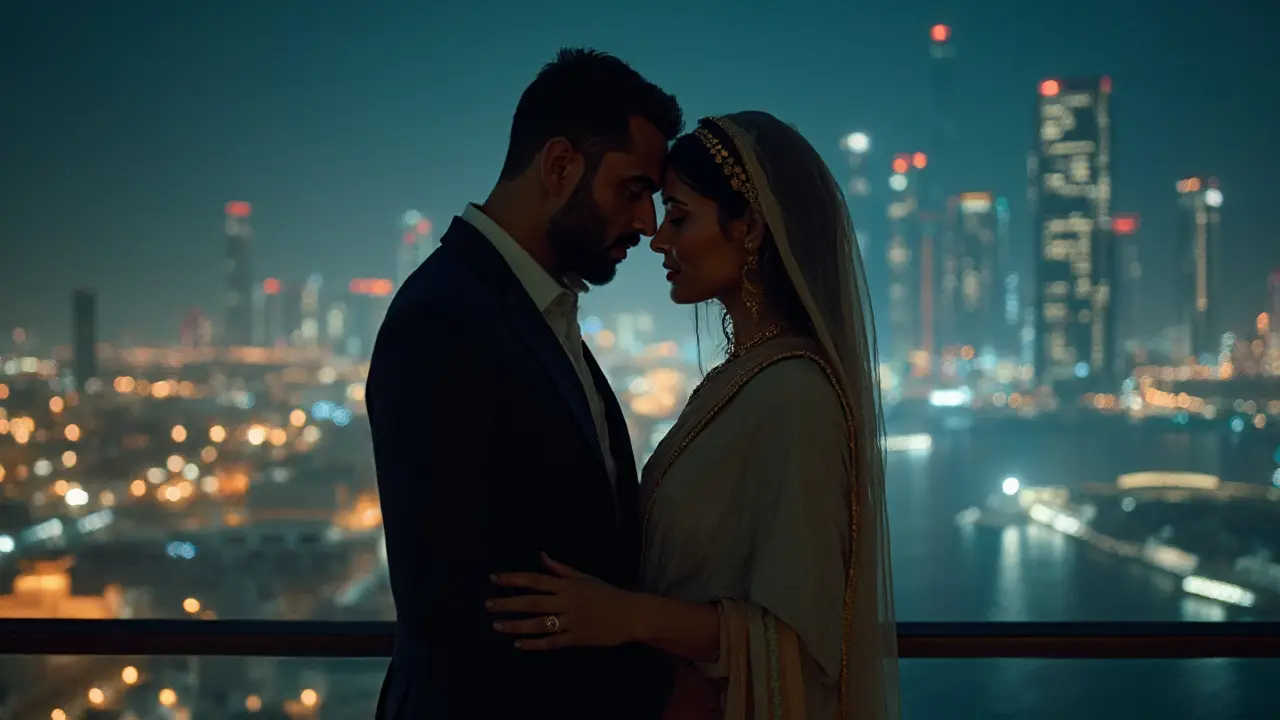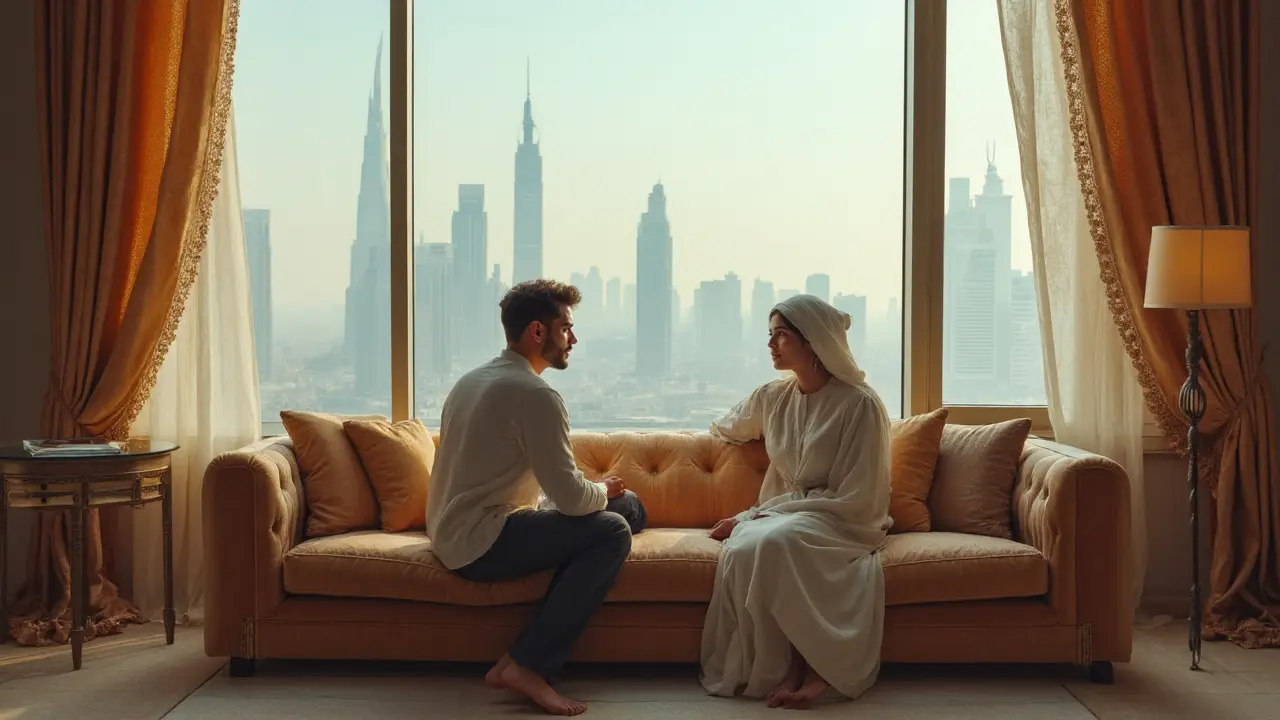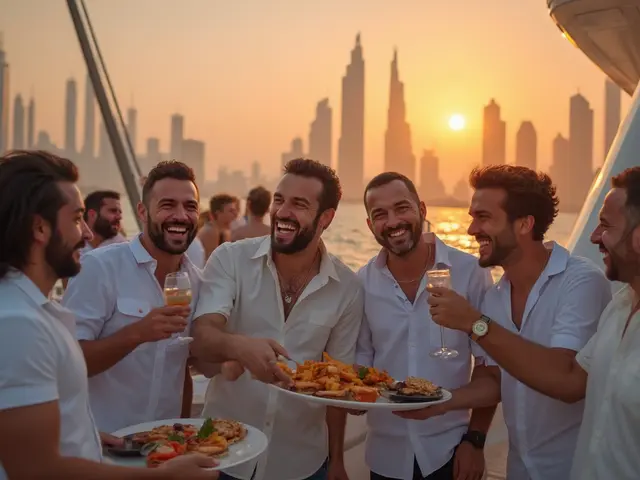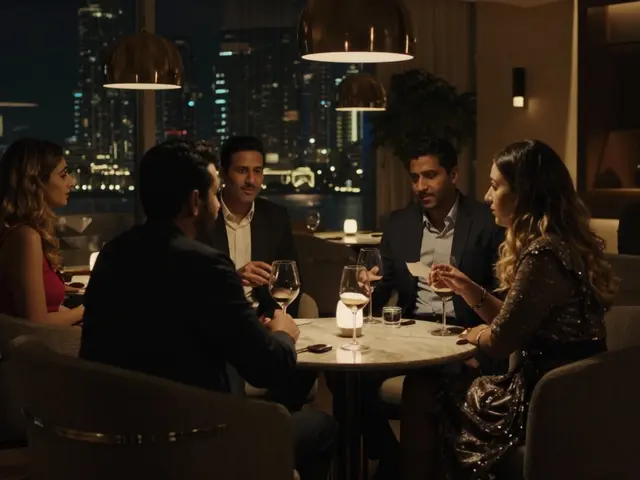
Sex may be a universal language, but in Dubai, the grammar comes with a thousand-page rulebook. If you’ve lived in the city or known people who have, you’ll hear one thing over and over: everyone’s careful. There’s a direct law for almost everything, from showing affection in public to who you can be with behind closed doors. But what happens when laws get this strict? Do they stop intimacy, or just change where people have it? (Hint: It’s complicated, and not at all what Hollywood would have you think.)
How Dubai’s Laws Shape Private Relationships
Dubai isn’t shy about what it expects from residents when it comes to intimacy. Sex outside of marriage? Officially illegal, though lately, authorities are quietly less harsh with expats. Unmarried couples living together? Until late 2020, that too could land you in hot water, but recent legal reforms have softened things—on paper, at least. So, why do so many people still feel nervous? It’s as much about culture as statutes. Even after the law eased, the decades of social habit linger. Most residents know a friend who still lies to landlords or keeps a toothbrush hidden at their partner’s place. The risk isn’t only police; it’s nosey neighbors, curious building staff, or just saying the wrong thing on social media. Even a “couples’ selfie” in the wrong place sparks concern.
The idea that Dubai residents totally avoid premarital sex isn’t just wrong—it misreads human nature. Love and attraction don’t wait for visas. People work around the red tape, but with more anxiety, secrecy, and awkwardness. For some, casual relationships are rare because trust means everything. If you know someone could potentially report you—sometimes for money or revenge—you’re careful about your partners, your WhatsApp messages, and even your Uber drop-off locations.
Imagine trying to plan a romantic date night with the law on your mind the entire time. For Emirati locals, traditions are stronger, and breaking rules might mean family drama alongside any legal fallout. For expats, the mashup of cultures is obvious: one group whispers about secret keys and hidden birthday getaways, while another group just wants to avoid getting caught in a legal gray zone. Privacy isn’t just a preference; it’s survival. The hotel industry knows this, offering “family-only” room policies and, for others, a wink-and-nod understanding with reception staff where passports tell the whole story about your relationship.
The Social Reality: Daily Life, Public Image, and Quiet Rebellion
In Dubai, what you do in your own home is technically your business—unless someone decides it’s not. This fine line between privacy and public order shapes so much about sex, dating, and even everyday interactions. Holding hands? Sometimes fine, sometimes risky, depending on where you are and who’s watching. Kissing in public? Not a good idea. There have been stories—famous ones—of tourists arrested simply for a peck in a restaurant booth or for sharing a cuddle on the beach. While these cases aren’t as common as they were a decade ago, their ghost is everywhere in dating culture.
The internet, of course, has made things more complicated. Dating apps like Tinder and Bumble are huge in Dubai; just scroll through and you’ll see users who list “discretion a must” as their first requirement. People meet, match, and then play a careful game of, “Can I trust you? Will you be safe?” Sexual exploration becomes something people discuss in low voices, with coded language. I’ve heard from women who get creative: dinner dates in hotel restaurants, spa days with “wellness retreats” as cover, road trips to the Ras Al Khaimah desert where nobody’s looking. Most expats, especially Westerners, joke about their “Dubai diaries” filled with stories of near-misses and clever getaways. It's almost a rite of passage.
But the constant sense of risk can kill romance. Imagine wanting to be spontaneous, but having to organize every detail in secret. Couples often have private signals or invented alibis, in case they run into someone from work. Some even create backup explanations for their relationship—“We’re just friends, sharing a cab home.” What does all this do over time? It adds stress and, weirdly, sometimes brings couples closer. When you’re both dodging the same dangers, it’s a little like a heist movie—just with less car chases and more whispered hotel bookings.
| Aspect | What’s Legal | What Can Get You in Trouble |
|---|---|---|
| Holding Hands | Usually okay for married couples | Risky for unmarried couples in some areas |
| Kissing in Public | Not allowed | Can lead to fines, arrest |
| Living Together | Legal since 2020 (regardless of marital status) | Still sensitive in certain communities |
| Sex Outside Marriage | Officially decriminalized for expats (since 2020 reforms) | Traditional/family enforcement or accidental legal risk if a complaint is made |
Kids grow up hearing about all these hush-hush rules, too. If you’re a parent in Dubai, you probably spin stories about “good behavior” and “respect for public spaces,” but the real talk happens behind closed doors. My daughter Elara once asked why people get weird about hugging in malls, and I just told her, “Some places have different ideas about what’s okay in public.” The trick is balancing openness with the reality that Dubai’s rules aren’t changing overnight.

Sex, Secrecy, and the Online World
Online communities are a lifeline for anyone living in Dubai who wants advice, reassurance, or just to feel less alone. Forums and private chat groups are filled with questions: “Is it safe to book this hotel?” “How do you date without nosy neighbors finding out?” This isn’t just for expats—locals, too, covertly browse and contribute in their own circles. Plenty of couples rely on WhatsApp, Telegram, and even encrypted messaging to keep their love lives truly private. Safe sex talks aren’t just about pregnancy now—they’re about avoiding the wrong kind of attention.
The role of social media is mixed. On one hand, sharing pictures or hints about your relationship can attract the wrong kind of attention, especially if you come from a more traditional background. People learn to blur faces, avoid tagging locations, and keep relationship statuses vague. Instagram posts may show “adventures with friends” rather than romantic getaways. Online dating, popular as ever, comes with code words and private profile settings: you’ll see hints about being “open-minded,” “clean,” or “looking for connection, not drama.” Swiping right is more exciting with a dash of adrenaline—and maybe anxiety.
For LGBT+ residents, the legal landscape is tougher. Same-sex relationships are still illegal, with harsh penalties. This adds another layer of secrecy—support groups, coded language, and a lot of careful maneuvering. I remember chatting with one British expat who joked that meeting her girlfriend for coffee was “like joining MI6—safehouse locations, burner phones, the works.” Yet, in quiet corners and private circles, these relationships quietly persist.
Plenty of services in Dubai recognize this need for discretion. You see it in the details: hotel staff trained not to ask awkward questions, delivery services that offer “no-contact” drop-offs, and even apartment complexes that quietly ignore rumors, provided nothing gets too loud or public. People want to connect, to love, to have a good time—they just have to be creative about it.
Living (and Loving) Under the Radar: Tips, Adaptations, and Hopes for Change
Surviving and thriving in Dubai’s dating world means treating the law almost like a partner in the relationship. You learn the dance: where to meet, who to trust, how to keep things quiet. The best advice? Don’t get complacent. Know your rights (and your risks), keep your social footprint light, and never assume privacy in public or online. If you’re new to the city, ask seasoned friends—Dubai has an entire shadow network of people who know the best “safe” spots to meet, the hotels where questions aren’t asked, and the best signals for a quick exit if a conversation turns awkward.
Avoid public displays of affection—not just because of the rules, but because other people are quick to pull out their phones or report what they see. Stick to private places for more personal moments. There’s a kind of community built on secrecy: friends swap stories about wild nights that almost ended badly, or near-misses with the law. The more you listen, the better you get at blending in. Never broadcast your relationship on social media unless you’re okay with attention, and remember: WhatsApp isn’t private if someone decides to make trouble.
If you’re raising kids, keep conversations open without scaring them. I’ve told Orion that “everywhere you go, there are rules,” and that respecting them doesn’t mean you can’t be yourself—just that you need to know when and where it’s safe to relax. My own kids will probably someday laugh about how their mom had to hide anniversary cards inside cookbooks and schedule family time like covert ops—because that’s Dubai life. The rules might sound harsh, but families work, couples connect, and intimacy finds a way. Most residents figure out a rhythm—avoid drama, pick safe places, trust carefully, and remember that even strict rules can’t completely rewrite human desire.
People always ask: will Dubai’s laws relax more? Hard to say. City leaders want to attract the world’s best talent, and new reforms prove they’re listening a little. For now, though, daily life means adapting—sometimes hiding, sometimes laughing at the absurdity. Residents dream of the day when loving someone in Dubai won’t require such Olympic-level planning. Until then, everyone learns: privacy isn’t just preferred, it’s everything.



